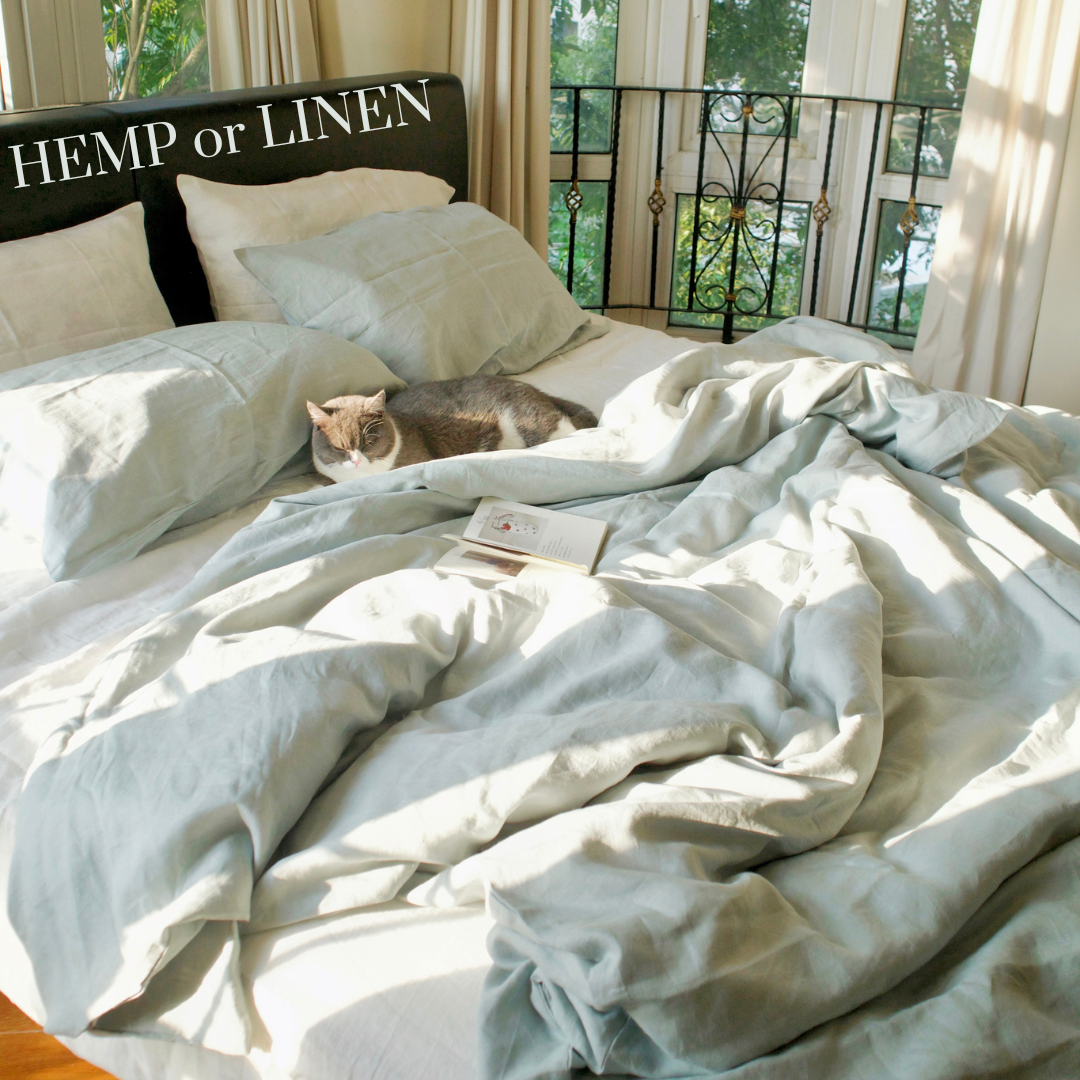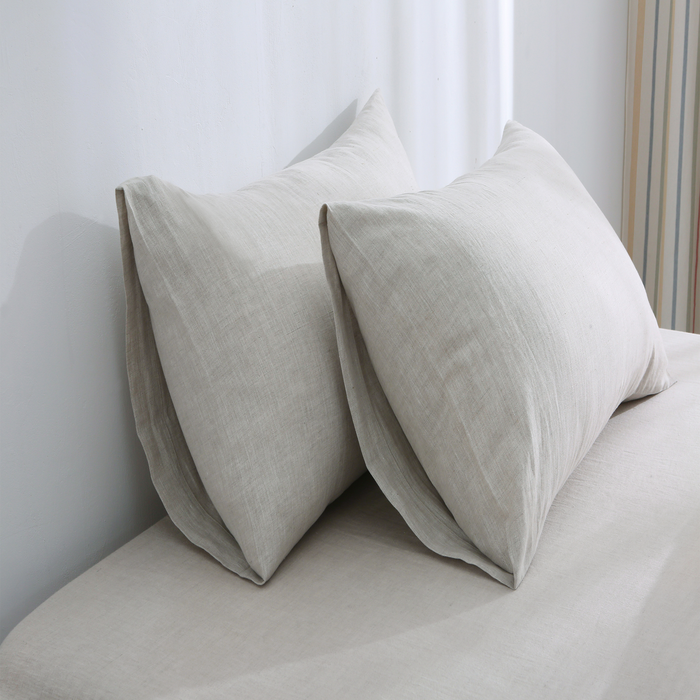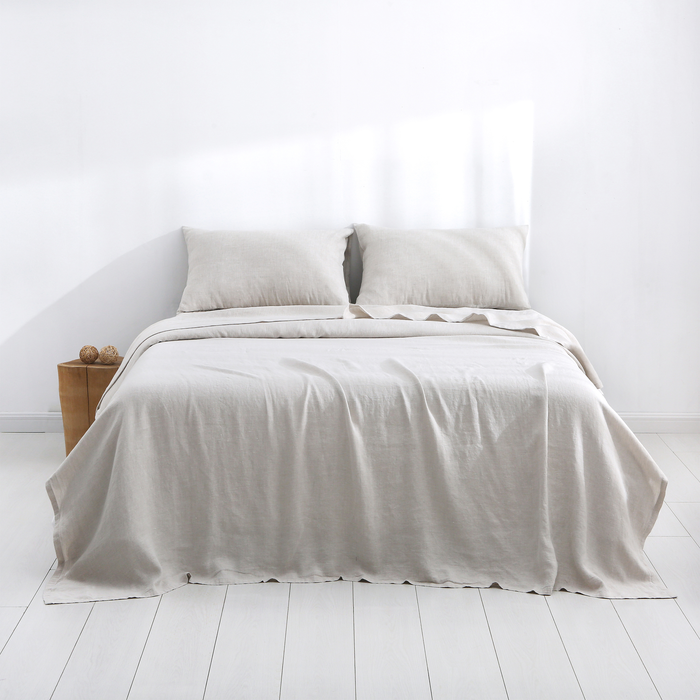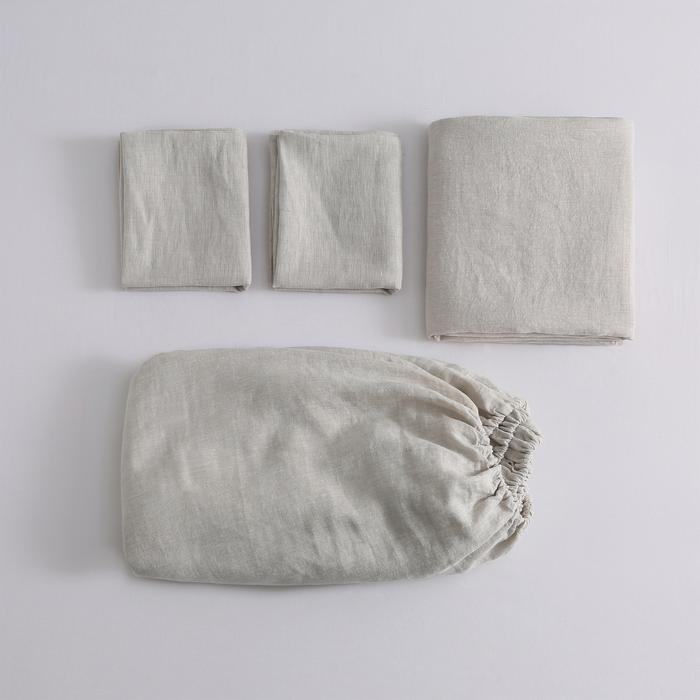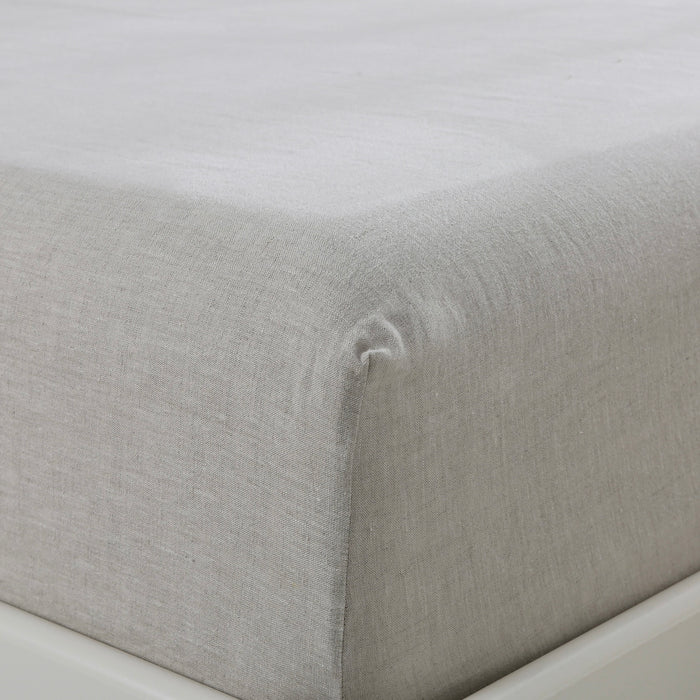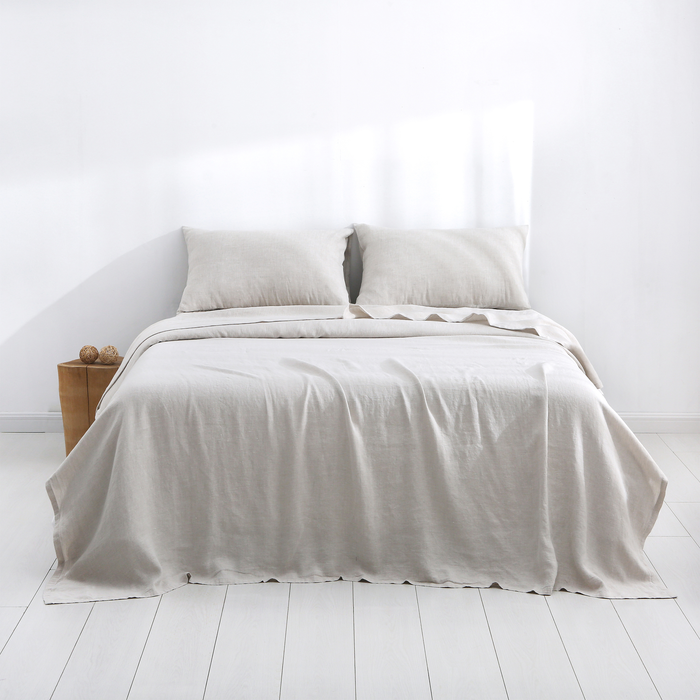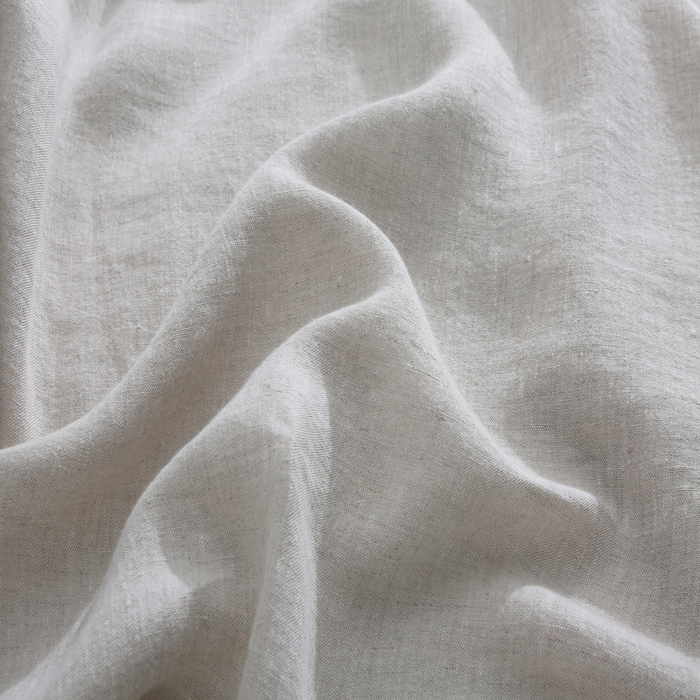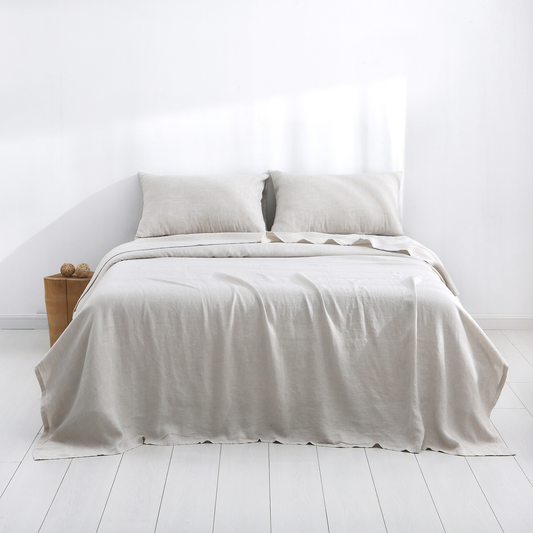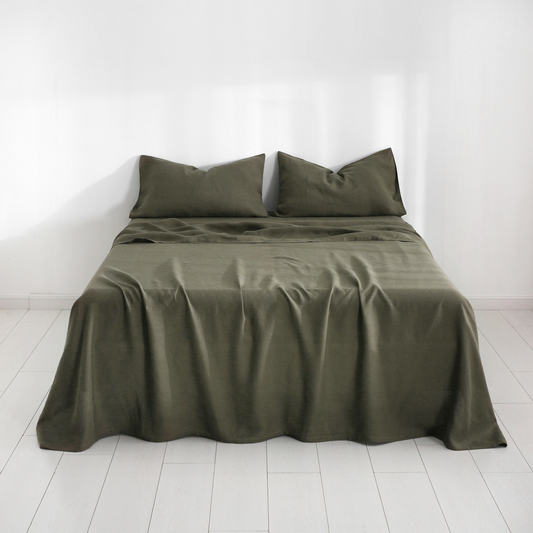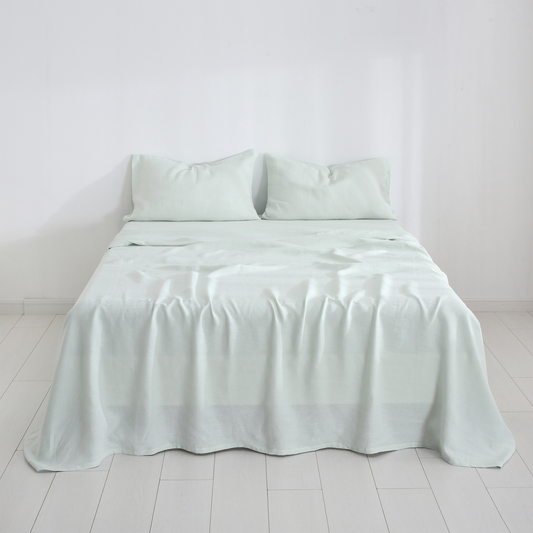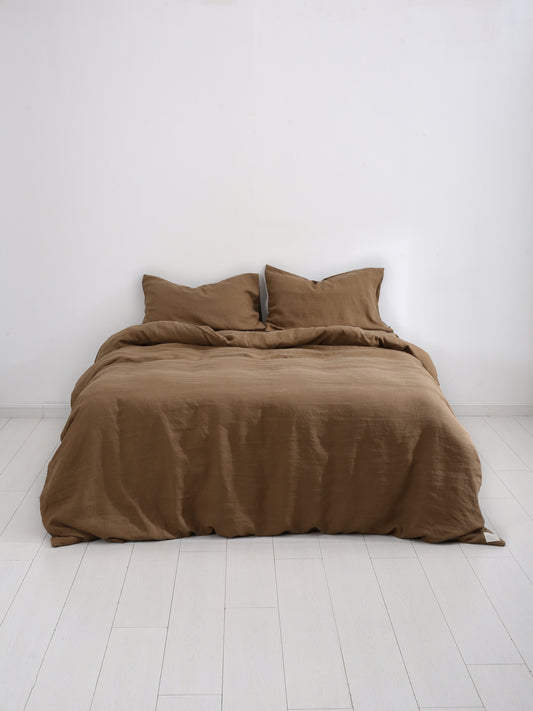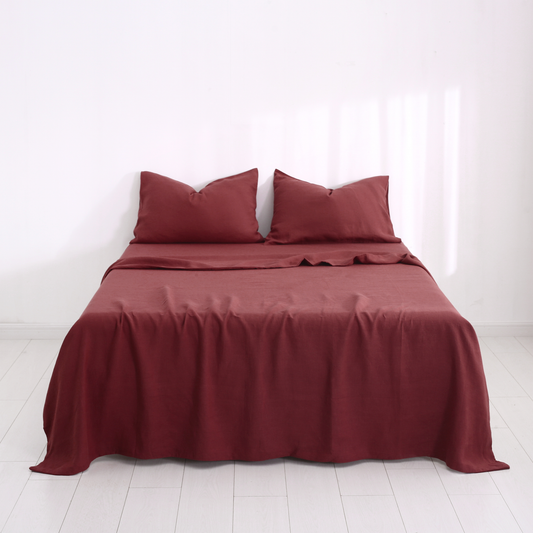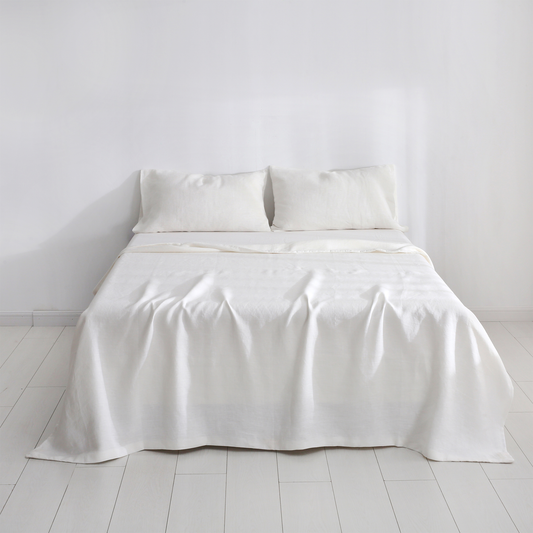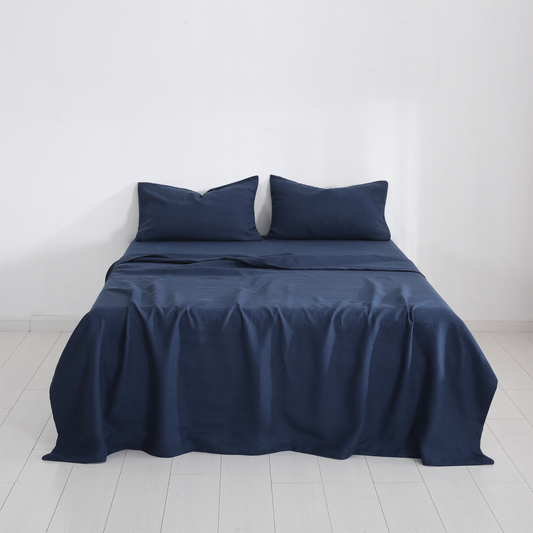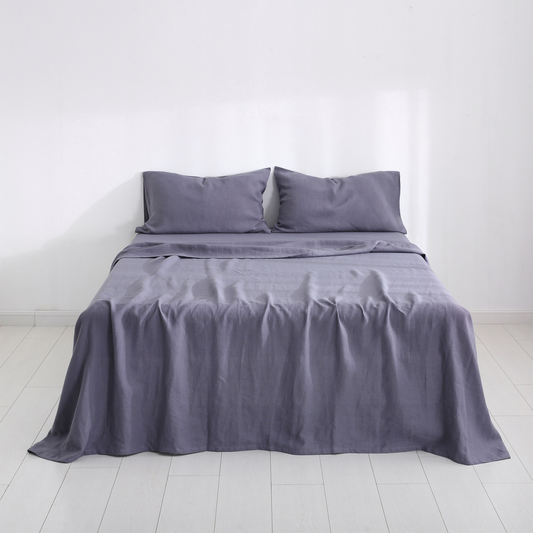We all want a good night’s sleep but did you know that your bedding and sleepwear contribute to how you sleep? A study done by Nat Sci Sleep in 2016 concluded that:
“These findings suggest that sleepwear played a contributory role to sleep outcomes and participants slept better at 17°C than at 22°C.”
Knowing this, it becomes especially important when we’re discussing hemp sheets vs other types of sheets like linen.
The goal of this article will be to give you a better understanding of hemp bedding and linen bedding to let you make an educated decision on what works best for you to help you sleep better. Although we are a hemp bedding company, we understand that everyone is different and might have different preferences for what they want in their bedding (it is a fairly exclusive experience anyway).
Hemp vs Linen Properties
| Aspect | Hemp Advantages | Linen Characteristics |
|---|---|---|
Water Usage |
Requires significantly less water to grow compared to linen. | Requires more water than hemp but still less than many other crops. |
Environmental Impact |
Hemp has a smaller environmental footprint, grows quickly, and improves soil health. | Linen is sustainable, with the flax plant benefiting the soil; however, it generally has a slightly higher environmental impact than hemp. |
Durability |
Hemp fibres are stronger, providing greater durability and a longer lifespan for bedding. | Linen is durable and has a long lifespan but is slightly less strong than hemp fibres. |
Sustainability |
Extremely sustainable, requires minimal pesticides and no herbicides. | Sustainable, but typically requires more inputs than hemp for optimal growth. |
Thermal Regulation |
Offers excellent thermal regulation, keeping users comfortable in a wider range of temperatures. | Excellent breathability and good thermal regulation, though hemp edges out in temperature versatility. |
Cost-Effectiveness |
Though initially more expensive, hemp's durability offers greater long-term value. | Considered a luxury fabric with a high upfront cost, but offers value through its durability and comfort. |
Soil Health |
Enhances soil health through phytoremediation, leaving it in better condition for future crops. | Flax cultivation benefits soil, but hemp has a more pronounced effect on improving soil quality. |
Moisture Wicking |
Exceptional moisture wicking, keeping you dryer throughout the night. | Very good moisture wicking, but hemp is slightly more effective in keeping moisture away. |
Hypoallergenic |
Naturally hypoallergenic, making it ideal for sensitive skin. Resistant to bacteria and mould. | Also hypoallergenic and resistant to bacteria, making it suitable for sensitive skin, but hemp has a slight edge in antimicrobial properties. |
Hemp vs Linen Thermal Regulation
As someone who has slept on both hemp and linen, they are both very comfortable and soft. What I noticed particularly about hemp sheet sets is that it is amazing for moisture wicking. I usually tend to get hot and sweat quite a bit when sleeping, whereas my partner usually sleeps relatively cold. For both of us, the thermal regulation helps because I end up sleeping cooler and she ends up sleeping at a comfortable temperature. On top of that, the moisture wicking in hemp really helps with sweat which reduces the discomfort and disruptions I tend to feel in other bedding materials. Linen is definitely just as good at this, but I feel like hemp edges out linen for this.
Here’s a review from one of our customers recently who talked about the product.
“I sweat constantly everytime I sleep, but the JoDope hemp sheet sets has really helped in reducing how hot I feel. I’ve tried linen sheets, I’ve tried cotton sheets, and hemp really outperforms all of those. On top of that, I’ve felt like each time I wash the sheet, it becomes softer and softer which is an added bonus” - Patrick D, Sydney.
Hemp vs Linen Cost
We admit that linen does have a lower cost than hemp, especially considering how long it’s been around. However, it’s important to consider the investment in hemp is not only just in its luxury and environmental impacts, but also in how exceptionally durable it is. Hemp fibres are renowned for their strength and can endure countless washes and continuous use, remaining soft throughout its entire lifetime.
| Aspect | Hemp Bedding | Linen Bedding |
|---|---|---|
Initial Cost |
Higher initial investment but reflects the quality and durability of the material. | Generally high due to the labour-intensive process of producing linen. |
Durability |
Exceptionally strong fibres lead to increased durability and a longer lifespan. | Durable with a long lifespan but slightly less robust than hemp. |
Maintenance |
Low maintenance; becomes softer with each wash without losing strength. | Requires gentle care to maintain softness and prevent wear. |
Cost per Use |
Remarkably low cost per use due to durability and longevity. Hemp bedding can last for many years, making it an economically wise choice in the long run. | Lower cost per use compared to less durable materials but generally higher than hemp when considering lifespan and durability. |
The combination of durability, low maintenance, luxury and positive environmental impact makes hemp an economically and ecologically wise choice, offering significant value over time.
What We Recommend
Based on the advantages we’ve gone through in this article, here’s our suggestions:
For a complete overhaul of your bedding (and what we recommend), we suggest getting a full set. This includes everything from the fitted sheet, flat sheet, pillow cases and doona covers.
If you wanted individual pieces just to try out our products, you can also try the fitted sheet, the flat sheets, doona covers or even just starting out with the pillow cases.
Check out some of our products below:

Written By Oscar Langoulant
Founder/Owner of JoDope.com
Driven by a passion for hemp's potential in sustainable bedding, Oscar, alongside Jess, champions ethical manufacturing with JoDope.com. Their mission is to leverage hemp's superior sustainability to revolutionize the bedding industry.
Read More »»
